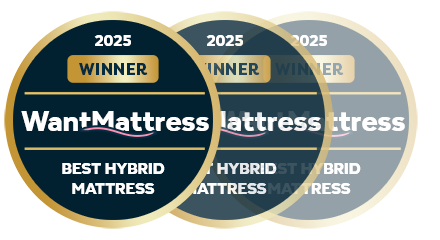Do you ever wake up feeling like you didn’t get enough sleep? Or that you just spent the night tossing and turning? You may not be getting enough REM sleep. REM sleep, or Rapid Eye Movement sleep, is a stage of sleep that plays an important role in sleep health and overall wellbeing. In this article, we’ll explore what REM sleep is, the benefits of REM sleep, how to achieve better REM sleep, and the science behind REM sleep.
Introduction to REM Sleep
REM sleep is one of the five stages of sleep, which include light sleep, deep sleep, and dreaming. It’s the deepest stage of sleep and is the most restorative and restful. During REM sleep, your body is relaxed and your eyes move side to side rapidly as if you are dreaming. This stage of sleep is also associated with increased brain activity, increased heart rate, and increased breathing rate.
During REM sleep, your body is in a state of paralysis and your muscles are relaxed. This paralysis prevents you from acting out your dreams. REM sleep is essential for learning, consolidating memories, and restoring the body and mind.
What Are the Benefits of REM Sleep?
Getting enough REM sleep is essential for a good night’s rest, as it helps to restore the body and mind. It’s also important for learning and memory, as it helps to consolidate memories and store new information. REM sleep is also important for creative problem solving, as it allows the brain to make connections that it might not have made when awake.
Additionally, REM sleep helps to regulate hormones, mood, and energy levels. It helps to restore the body’s energy and promote healing. Inadequate amounts of REM sleep can lead to fatigue and irritability.
The Role of REM Sleep in Sleep Wellness
REM sleep is a vital part of sleep wellness. It’s important to get enough REM sleep every night in order to get the most out of your sleep. During REM sleep, your body is able to rest and heal, which is essential for overall health and wellbeing. Additionally, REM sleep helps to regulate hormones, mood, and energy levels, which can help to improve overall wellbeing.
How to Achieve Better REM Sleep
Getting enough REM sleep is essential for a good night’s rest, and there are several ways to achieve better REM sleep.
First, it’s important to create a sleep routine. Going to bed and waking up at the same time every day helps to regulate your body’s natural sleep-wake cycle and can help you get better sleep. Additionally, it’s important to avoid caffeine, alcohol, and nicotine before bed, as these can disrupt sleep.
It’s also important to create a comfortable sleep environment. Make sure your bedroom is dark, quiet, and cool. Additionally, limit the amount of blue light exposure before bed, as this can disrupt sleep.
Finally, it’s important to limit stress and anxiety before bed. Practicing relaxation techniques such as meditation, deep breathing, and muscle relaxation can help to reduce stress and promote better sleep.
Tips for Better Sleep Quality
In addition to creating a sleep routine and creating a comfortable sleep environment, there are a few other tips to help you get better sleep.
First, it’s important to limit daytime naps. Napping during the day can disrupt your natural sleep-wake cycle and make it harder to fall asleep at night. Additionally, it’s important to limit screen time before bed, as the blue light from screens can disrupt sleep.
Second, it’s important to stay active during the day. Exercise helps to regulate hormones and can help you to fall asleep faster and sleep better at night. Finally, it’s important to limit your intake of caffeine and alcohol, as these can disrupt sleep.
How to Track Your REM Sleep
Tracking your REM sleep is a great way to ensure that you are getting enough REM sleep every night. There are several ways to track your REM sleep, including using a fitness tracker or a sleep tracking app.
Fitness trackers and sleep tracking apps monitor your sleep patterns and can provide you with detailed insights into your sleep. They can track your total sleep time, REM sleep time, and light and deep sleep time. This can help you to understand your sleep patterns and make changes to improve your sleep quality.
Foods to Eat for Better REM Sleep
Eating the right foods can help to promote better sleep and can help to improve REM sleep. Foods that are high in tryptophan, a precursor to the sleep-promoting hormone melatonin, can help to promote better sleep. Foods that are high in tryptophan include eggs, milk, yogurt, nuts, seeds, and fish.
Additionally, foods that are high in magnesium can help to promote better sleep. Magnesium is a mineral that helps to relax the muscles and can help to promote better sleep. Magnesium-rich foods include dark leafy greens, bananas, nuts, seeds, and legumes.
Supplements to Help with REM Sleep
In addition to eating the right foods, taking supplements can help to promote better sleep and improve REM sleep. Magnesium and melatonin are two supplements that can help to promote better sleep. Magnesium helps to relax the muscles and can help to promote better sleep. Melatonin is a hormone that helps to regulate the body’s sleep-wake cycle and can help to improve REM sleep.
Additionally, taking vitamin B6 can help to promote better sleep. Vitamin B6 helps to convert the amino acid tryptophan into serotonin, a neurotransmitter that helps to regulate sleep. Vitamin B6 can be found in eggs, meat, fish, nuts, and legumes.
The Science Behind REM Sleep
The science behind REM sleep is complex, but it’s essential to understand in order to get the most out of your sleep. During REM sleep, the brain is more active than during other stages of sleep. This increased brain activity helps to consolidate memories, store new information, and promote creative problem solving.
Additionally, during REM sleep, certain hormones, such as melatonin and serotonin, are released. These hormones help to regulate the body’s sleep-wake cycle and can help to promote better sleep.
And So…
REM sleep is an essential stage of sleep that plays an important role in sleep health and overall wellbeing. Getting enough REM sleep is essential for a good night’s rest, as it helps to restore the body and mind. Additionally, it’s important for learning and memory, as it helps to consolidate memories and store new information.
There are several ways to achieve better REM sleep, including creating a sleep routine, creating a comfortable sleep environment, and limiting stress and anxiety before bed. Additionally, tracking your REM sleep and eating the right foods can help to promote better sleep. Taking supplements such as magnesium and melatonin can also help to promote better sleep and improve REM sleep.
If you’re looking to get better sleep and improve your sleep wellness, start by getting enough REM sleep every night. Make sure to get the most out of your sleep by creating a sleep routine, creating a comfortable sleep environment, and eating the right foods. Additionally, tracking your REM sleep can help to ensure that you’re getting enough REM sleep every night.
If you’re still having trouble getting enough REM sleep, consider talking to your doctor. They can provide you with more tips and advice on how to get better sleep and improve your sleep wellness.














